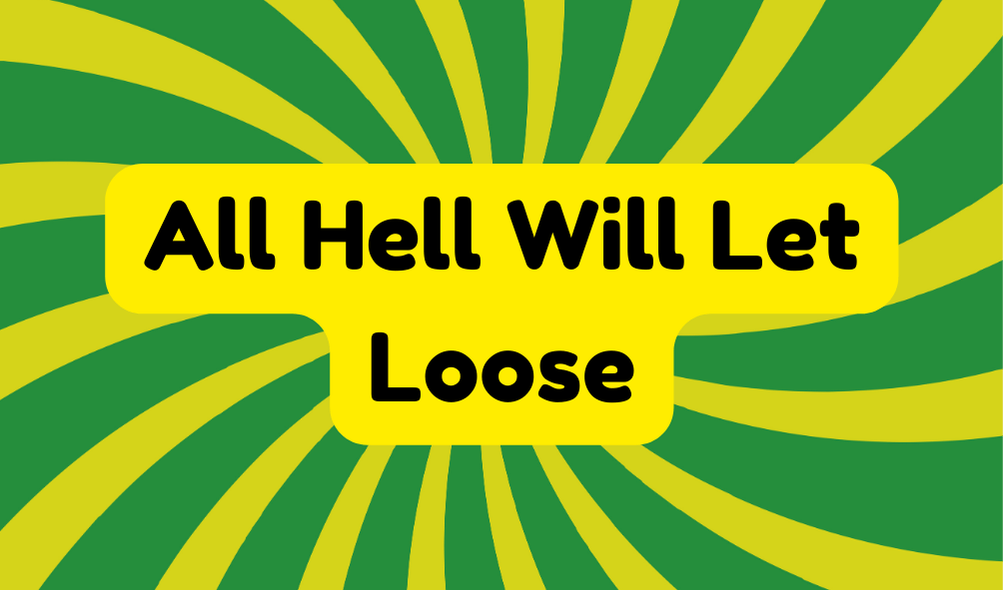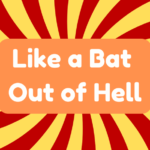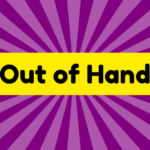The phrase "all hell will let loose" warns you about the chaos and disorder that can arise in society. It highlights how quickly situations can spiral into pandemonium or mayhem, especially when tensions build. This expression dates back to John Milton's "Paradise Lost," emphasizing rebellion and turmoil. In today's world, social unrest often ignites from feelings of injustice and frustration. Recognizing this potential for chaos is crucial for managing conflicts before they escalate. Understanding these dynamics can help you navigate societal tensions more effectively. Stay tuned for deeper insights into how this phrase plays out in modern contexts.
Synonyms
What words can capture the essence of "all hell will let loose"? When you think about chaotic outbursts and violent disruptions, several synonyms come to mind. These alternatives can provide fresh perspectives while retaining the core meaning. Here are three impactful options:
- Pandemonium – This term evokes an image of wild uproar and confusion, perfect for capturing chaotic scenes.
- Mayhem – Often used in situations of severe disruption, it hints at a loss of control, akin to all hell breaking loose.
- Bedlam – This word emphasizes a state of madness, perfectly aligning with the idea of uncontrollable chaos.
Using these synonyms can help convey the intense feelings tied to unpredictable, explosive situations, ensuring your message resonates clearly and powerfully.
Example of Sentences
When chaos erupts, "all hell will let loose" perfectly captures the scene. You might observe chaotic events unfolding, leading to unpredictable and often violent reactions. Here's a glimpse of how this phrase might manifest:
- A peaceful protest suddenly turns into chaos when a few individuals provoke confrontation.
- An ordinary gathering gets disrupted as alcohol-fueled tensions escalate into a brawl.
- Ignoring community grievances can trigger unexpected violent reactions, creating an environment where chaos thrives.
Understanding these examples sheds light on how seemingly minor incidents can spiral out of control. Recognizing the potential for chaos helps you navigate tense situations more effectively, ultimately promoting better conflict resolution and awareness in your community. Stay vigilant; awareness can prevent a minor spark from igniting larger fires.
Origin
The phrase "all hell will let loose" has fascinating roots that trace back to the 17th century. It became popular through John Milton's epic poem, "Paradise Lost," published in 1667. Within its verses, the Archangel Gabriel addresses Satan, marking a moment of impending chaos. This powerful imagery reflects historical interpretations of rebellion and turmoil, grounding it in biblical narratives. The literary significance of the phrase dynamically depicts an uncontrollable outburst, serving as both a warning and an exploration of chaos. As you study its origins, recognize that this expression not only highlights societal unrest but also invites deeper thought about the recurring patterns of conflict throughout history. Understanding its roots reveals much about human behavior and our response to disruption.
Collocations
Chaos often erupts in conversations surrounding disasters or disturbances, making it essential to understand common collocations that enhance the phrase "all hell will let loose." These collocations include phrases like "let loose" paired with "anger," "violence," or "chaos," which emphasize the intensity of a situation. Recognizing these patterns can help you convey your thoughts more effectively in discussions about noise disturbance and societal chaos. Consider these three key collocations:
- Let loose – often followed by "anger," highlighting sudden outbursts.
- Let loose – paired with "violence," indicating escalated aggression.
- Let loose – connected to "chaos," depicting an uncontrollable situation.
Understanding these combinations is foundational for grasping the nuances in conversations about societal conflicts.
How to Use in Everyday Language
Using the phrase "all hell will let loose" can vividly convey a situation spiraling out of control. You might use it in common scenarios, like when a quiet gathering turns chaotic due to an argument. It's also effective in historical contexts, such as describing revolutions that erupted from seemingly calm situations. Picture a party where tensions rise—if people feel excluded, all hell could indeed let loose. This phrase encapsulates the unpredictability of human emotions and reactions. Just be cautious; while dramatic, it can come off as hyperbolic if used too casually. By selectively deploying this phrase, you can enhance your language and convey urgency effectively, but be mindful of its impact on the conversation.
Why Is It Still Relevant Today?
There's no denying that the phrase "all hell will let loose" remains relevant in today's fast-paced world. As you navigate current events, you notice how social unrest continues to escalate, often triggered by psychological factors. People become agitated by their fears, frustrations, and perceived injustices, which can quickly spiral into chaos. In our increasingly connected society, a single spark—like a viral video or a controversial statement—can ignite widespread uproar, demonstrating how fragile the balance of order can be. This phrase serves as a stark reminder of potential upheavals lurking just beneath the surface. In understanding these dynamics, you can better prepare for the unexpected, ensuring you're ready to face the challenges of our tumultuous reality.







